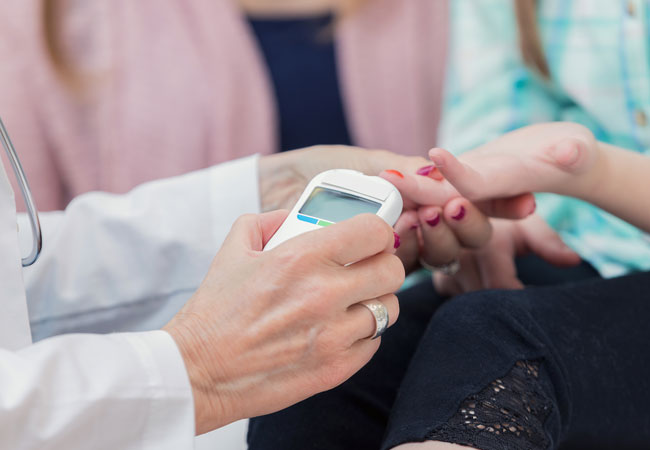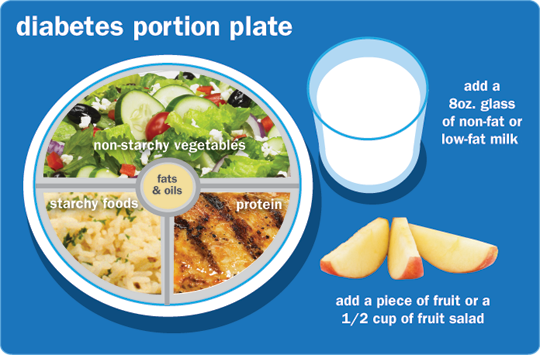In India more than 62 million individuals are currently diagnosed with diabetes, which is fast gaining the status of a potential epidemic. Most likely it is the combination of our food, lifestyle and genetics, which make Indians more prone to this medical condition. Physical inactivity and the consumption of fatty, high-caloric and sugary foods vastly increase the risk of becoming a diabetic. There are many early warning signs or symptoms of diabetes. Early detection and proper management of diabetes can reduce one’s risk of developing further complications associated with Diabetes.
Following are the symptoms of diabetes:

POLYDIPSIA (excessive thirst) and POLYURIA (excessive urination):
These are the classic symptoms of diabetes. During diabetes excess glucose (sugar) builds up in the blood. The kidneys work overtime to filter and absorb the excess sugar. When the kidneys can’t keep up with the pace the excess sugar is excreted into urine along with fluids drawn from the tissues. This triggers frequent urination which can lead to dehydration. As a result more fluid intake is required to quench the thirst resulting into more urination. It’s a vicious cycle with one symptom resulting into other.
SUDDEN WEIGHT LOSS and POLYPHAGIA (excessive hunger)
Weight fluctuation is one of the most common diabetes sign and symptom. Losing sugar through urination also results in calorie loss which leads to weight loss. This also triggers excessive and constant hunger or POLYPHAGIA.
FATIGUE
Fatigue can be attributed to dehydration from increased urination and body’s inability to function properly and to use sugar for energy needs.
SLOW HEALING OF SORES AND INFECTION
The possible reason for the slow healing can be that high sugar impairs body’s natural healing process and ability to fight infections. For women, bladder and vaginal infections are very common.
TINGLING SENSATION
Excessive sugar can lead to nerve damage (NEUROPATHY), which may result in the tingling and loss of sensation in hands and feet as well as burning pain at times.
RED, SWOLLEN AND TENDER GUMS
Diabetes weakens the ability to fight germs, which leads to the risk of infection in gums. The gums may pull away from the teeth leaving it loose and may lead to developing sores.
BLURRED VISION
Diabetes symptoms many times involve vision. High levels of blood sugar pull fluid from tissues, including the lenses of eyes. This affects the ability to focus. Diabetes can cause blockages or abnormal growth of blood vessels in the retina; the part of the eye that reads images. Blood vessel changes in the retina can lead to vision problems and even blindness. People with diabetes are also more likely to develop cataracts or glaucoma, two other serious eye conditions.
Above symptoms can help in early detection of diabetes. Proper management and regular intake of supplements like FENFUROTM can help in combating the diabetes. Regular intake of FENFURO can maintain the blood sugar level effectively. FENFURO is a first of its kind, safe dietary supplement derived from fenugreek seeds through a patented process. Through its unique and patented scientific process, FENFURO concentrates the bioactive part of plants into a manageable dose, while removing the inert parts such as cellulose. Also, since a lot of healthy botanicals are not palatable, consuming their concentrate in capsule form in small dosage is a lot easier. FENFURO contains a rich variety of saponins and flavonoids. These substances are known to lower blood lipid level and help in insulin sensitization and glucose regulation. FENFURO is the first dual action insulin sensitizer.
A clinical evaluation of FENFURO was carried out on a total of 154 Type 2 diabetics for a period of 3 months, to determine its efficacy and safety. At the end of three months, 83% of the patients reported decrease in fasting sugar levels and 89% patients reported decrease in PP sugar levels. The patients also showed significant decrease in HbA1C levels as compared to respective baseline value. 48.8% of the patients reported reduction in dosage of anti-diabetic therapy after regularly taking FENFURO.
The statement and product have not been evaluated by the FDA to diagnose, treat, cure or prevent any disease





















